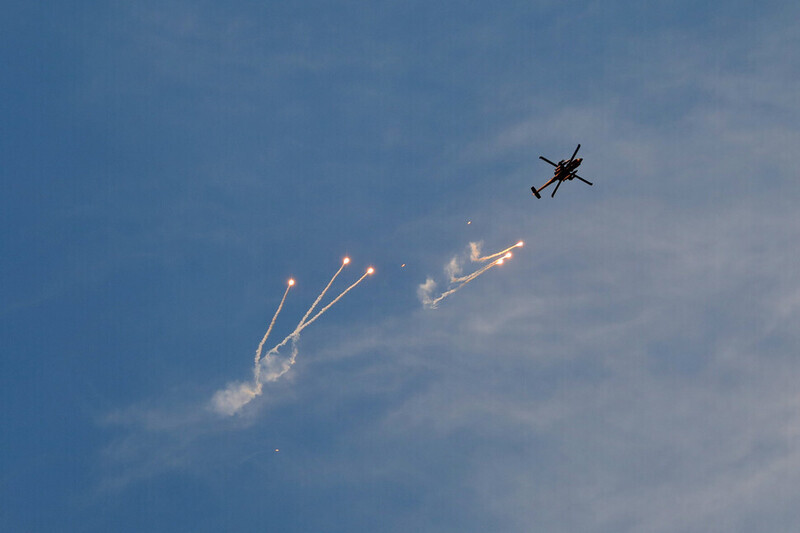hankyoreh
Links to other country sites 다른 나라 사이트 링크
[Column] Two colonizations, two reactions


The only thing to celebrate about the first anniversary of the Russian attack on Ukraine is the Ukrainian resistance, which surprised everyone, including their allies and maybe even many Ukrainians themselves.
Linked to this is another positive change in Ukraine. As one Ukrainian journalist put it, “People’s desire for justice at home has not diminished. If anything, it has got stronger – and rightly so, since most citizens are risking their lives to fight the genocidal threat posed by Russia. People have such a personal stake in Ukraine’s future, they are more sensitive than ever about what kind of country we are becoming, and how things should be after the war.”
Let’s hope that its ongoing anti-corruption campaign will grow into a more radical questioning of how things should be after the war. Will Ukraine simply catch up with Western liberal democracy and accept being economically colonized by big Western corporations? Will it join the neo-conservative backlash to globalization as Poland did? Will it risk trying to resuscitate bygone social democracy, at least?
Another aspect that must be noted is the international repercussions of Russia’s aggression. To condemn Russian colonialism, one must put Ukraine into a lineup along with other cases of neocolonialism — Israel and Palestine, for one.
Comparing the Israel-Palestine conflict to the Russian invasion of Ukraine, Kim Johnson, a Labour member of UK parliament, said that while references to Ukraine’s “heroic resistance” and Russia’s “illegal occupation” had been widespread, “these expressions have been sorely missing when referring to the occupation in Palestine, and in solidarity with Palestinians resisting the expansion of illegal settlements, apartheid and oppression.”
For such statements, she was — as expected — denounced as anti-Semitic.
But now, with the new Israeli government engaged in the de facto annexation of the West Bank, the parallel with Russia has become even more pertinent. Already in December 2022, the new Israeli government stated that the Jewish people have an “exclusive and indisputable right to all parts of the Land of Israel,” including the West Bank.
It further declared that Israeli sovereignty shall be applied to the West Bank, while additionally announcing it would switch from a framework of using the “law of occupation” to an application of Israeli domestic law — that is, annexation in all but name.
Israel will confront a problem here: If the West Bank simply becomes part of Israel, what will it do with the well over 2 million of Palestinians living in the West Bank? If they are made regular Israeli citizens, they will form together with today’s Israeli Palestinians a very strong voting bloc — certainly an unacceptable outcome for the present Israeli government. (Therein resides also the true reason why Israel has yet to annex the West Bank.)
Israel has only two options to prevent this: either expel as many Palestinians as possible from Israel or impose an “institutionalized regime of systematic oppression and domination by one racial group over another, with the intention of maintaining this regime, otherwise known as apartheid,” as Just Security puts it.
At the beginning of 2023, Israel was shaken by demonstrations against the new right-wing government and its brutal politics which subordinated the judiciary. However, the hundreds of thousands of liberal, freedom-loving protesters more or less ignored the plight of the Palestinians who make up 20% of the population.
In these conditions, a true political act would be to propose a large democratic coalition that would include Palestinians. Such an act would be very risky because it would break an unwritten rule of Israeli politics. However, only such a coalition, such a change in the coordinates of what appears as possible in Israel can prevent Israel to become just another religious-fundamentalist racist state.
Please direct questions or comments to [english@hani.co.kr]

Editorial・opinion
![[Guest essay] Preventing Korean Peninsula from becoming front line of new cold war [Guest essay] Preventing Korean Peninsula from becoming front line of new cold war](https://flexible.img.hani.co.kr/flexible/normal/500/300/imgdb/original/2024/0507/7217150679227807.jpg) [Guest essay] Preventing Korean Peninsula from becoming front line of new cold war
[Guest essay] Preventing Korean Peninsula from becoming front line of new cold war![[Column] The state is back — but is it in business? [Column] The state is back — but is it in business?](https://flexible.img.hani.co.kr/flexible/normal/500/300/imgdb/original/2024/0506/8217149564092725.jpg) [Column] The state is back — but is it in business?
[Column] The state is back — but is it in business?- [Column] Life on our Trisolaris
- [Editorial] Penalties for airing allegations against Korea’s first lady endanger free press
- [Editorial] Yoon must halt procurement of SM-3 interceptor missiles
- [Guest essay] Maybe Korea’s rapid population decline is an opportunity, not a crisis
- [Column] Can Yoon steer diplomacy with Russia, China back on track?
- [Column] Season 2 of special prosecutor probe may be coming to Korea soon
- [Column] Park Geun-hye déjà vu in Yoon Suk-yeol
- [Editorial] New weight of N. Korea’s nuclear threats makes dialogue all the more urgent
Most viewed articles
- 1Yoon’s broken-compass diplomacy is steering Korea into serving US, Japanese interests
- 2[Guest essay] Preventing Korean Peninsula from becoming front line of new cold war
- 3[Column] Why Korea’s hard right is fated to lose
- 460% of young Koreans see no need to have kids after marriage
- 5[Guest essay] Maybe Korea’s rapid population decline is an opportunity, not a crisis
- 6S. Korean first lady likely to face questioning by prosecutors over Dior handbag scandal
- 7[Reporter’s notebook] In Min’s world, she’s the artist — and NewJeans is her art
- 8After 2 years in office, Yoon’s promises of fairness, common sense ring hollow
- 9Amid US-China clash, Korea must remember its failures in the 19th century, advises scholar
- 10[Column] The state is back — but is it in business?